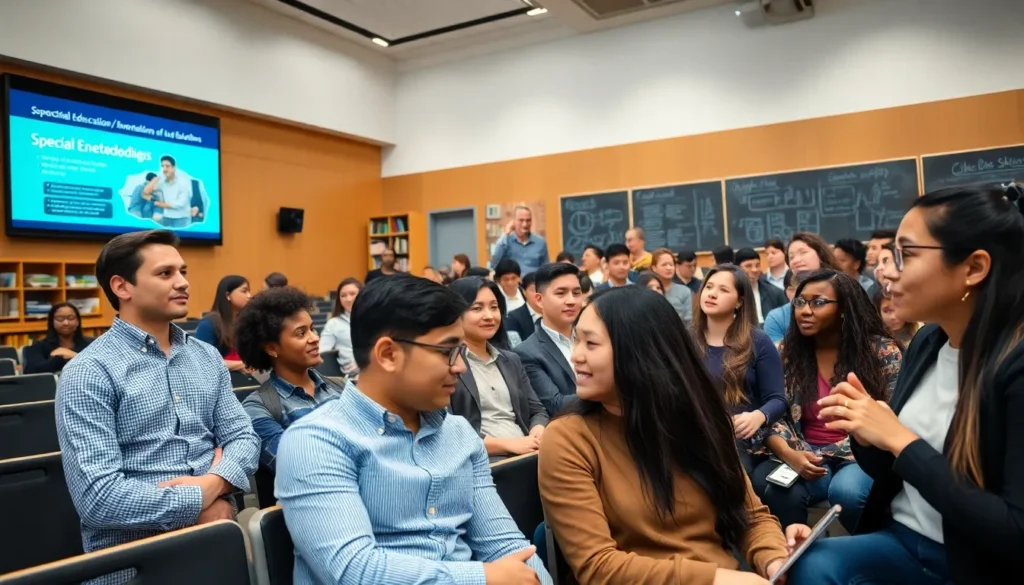Table of Contents
ToggleNavigating the world of higher education can be like trying to assemble Ikea furniture without the instructions, confusing and perhaps a little frustrating. When the focus shifts to special education, the stakes get even higher. Not only does it require a distinctive understanding of diverse learning needs, but it also demands a heart committed to impact lives positively. Special education colleges are designed precisely for individuals ready to champion inclusivity, ensuring every child has access to quality education. Let’s jump into how these programs equip future educators with the right tools to make a real difference.
Understanding Special Education

Special education goes beyond standard teaching methods. It involves customized supports tailored to students with various needs, including learning disabilities, emotional disturbances, and more.
At its core, special education recognizes that every learner is unique. Educators in this field work to develop Individualized Education Programs (IEPs), ensuring that students receive the type of instruction that suits their learning styles best. Understanding different disabilities and strategies to support them is crucial, forming the backbone of all special education programs.
From autism spectrum disorders to physical disabilities, special education teachers equip themselves with knowledge to meet the varied needs of their students. This foundation is not just about textbook learning: it’s about fostering an environment where all students can thrive.
Programs and Degrees Offered
When it comes to special education colleges, the array of programs resembles a buffet, there’s something for everyone. Degrees range from Associate’s to Master’s, even including certifications for those already in the field seeking to enhance their skills.
Bachelor’s Degrees are foundational, typically focusing on educational theories, child psychology, and specific learning strategies.
Master’s Degrees take it a step further, delving into advanced methodologies and research practices. Many colleges also offer specialized certifications in areas such as behavior analysis or teaching students with autism. This allows educators to tailor their expertise to their passions.
For those looking to climb the ranks, Doctoral Programs exist for future leaders and researchers in the field, equipping them with skills to influence education policies and practices on a larger scale.
Admission Requirements and Application Process
Aspiring students hoping to enroll in special education programs should prepare for a journey that requires dedication and resilience. Generally, the admission process resembles that of other college programs, including an application form, transcripts, recommendation letters, and often an essay detailing the applicant’s passion for special education.
Skills Developed Through Special Education Programs
Skills development is a critical component of these programs. Participants learn active listening, effective communication, and behavioral management techniques. They become adept at crafting lesson plans suited for diverse learners while prioritizing patience and adaptability.
As they progress through their studies, students engage in hands-on experiences through internships, enabling them to apply theoretical knowledge in real-world classrooms. This practical component is invaluable, as it fosters both confidence and competence in future educators.
Career Opportunities After Graduation
Graduating from a special education college opens numerous doors. Graduates often start as special education teachers but can transition into various roles over time. Positions include behavior specialists, educational consultants, and advocates for inclusive education practices.
Graduates might also pursue roles in administration or curriculum development, shaping educational policies that accommodate all students.
Support Services for Students with Disabilities
One crucial aspect of being an educator in this field is understanding support services available to students. Collaborating with speech therapists, occupational therapists, and counselors is often necessary to create an inclusive educational environment. This teamwork enhances the learning experience, making it structured and supportive.




